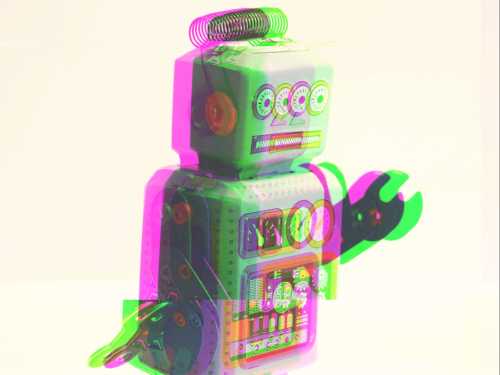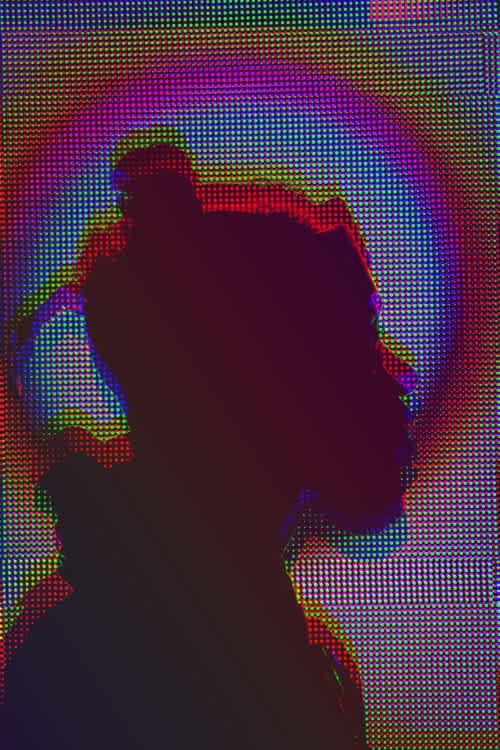The technology isn’t looking for meaning… you are
I have written at lengthabout Web3 over the past few years. For some context, it was birthed by the 2008 financial crisis and the ensuing Silicon Valley/Wall Street’s war of influence over the economy. First came the creation of cryptocurrencies. Since no one wants to accept BTC or ETH for a loaf of bread, NFTs were created. The COVID pandemic having led to a loneliness crisis, NFTs helped foster online communities, that grew, evolved, and came to need organization. Decentralized Autonomous Organizations (DAOs) are the logical next step.
I rather like DAOs: they borrow many of their core principles from organizational theory and have pushed forward interesting ideas around self-organization and emergence. Nevertheless, and without fail, everything the crypto community touches turns to poison. DAOs today don’t work. Below are the (many) reasons why.
...
Easy DAO Definition
The tech community has a habit of making simple concepts difficult. This needn’t be the case. In short, DAOs are how humans come together as a group to make decisions in the digital world. They do so with the help of two key tools. Firstly, the rules that govern the organization are expressed as a series of digital “IF/THEN” statements, that are then coded directly into a blockchain (thus rendering them both auditable and permanent). Secondly, voting shares are issued to stakeholders in the form of “digital governance tokens” — also recorded on a blockchain. Doing things this way replaces, in theory, both the legal mumbo-jumbo of today’s organizations (rules are coded) and their hierarchical nature (everyone has a voice).
Technically, all sorts of work structures can be created as Decentralized Autonomous Organizations. Investment companies, consulting companies, engineering companies… But that’s just the theory. Reality is much less kind.
...
1. In DAOs, your pay is decided by your peers
DAOs are trying to innovate on the way people get paid. Having one entity (the market, a team, a committee, leadership…) decide on salary would be centralization, and thus unacceptable for the crypto crowd. There are interesting ideas being tested instead, but the way communities are doing it highlights the privilege of the people working on decentralized projects.
Today, pay revolves around a set of key questions. Should salaries be market-based? Role-based? Value-based? Employment-based? Ethics-based? Are they guaranteed? Localized? Negotiable? Secret or transparent? Singular, variable, tiered? Annually adjusted? market-adjusted? Are raises possible? If so, should they be tenure or experience-driven? Linked to performance? Inflation? DAOs fail to answer most of these questions.
DAOs today are composed of two classes of people: Core Contributors and Edge Contributors. The former are employees of sort, and earn a stable base pay from the organization. The latter are attracted to the organization’s mission, and volunteer their skills to perform tasks. They will usually expect a reward for their work. But the money set aside for salaries and rewards is not infinite, and must be shared fairly between contributors. Many DAOs have turned to tools such as Coordinape to tackle this challenge. This solution allows organizations to create “circles” of contributors (the equivalent of teams). Each member of the circle is given points and allocates them to other members of the circle over a certain period. The higher the perceived “value” of the work done, the higher the number of points received, and the higher the financial reward. If that seems too easy, trust your instincts.
DAOs are automated to ensure no funny business happens after the votes are cast (hence the “Autonomous”). However, point allocation requires that one trusts there is no collusion between actors in the team before the vote. This is strange, given that one of web3’s key selling points is the “decentralization of trust”. In fact, a point system begets constant feedback and transparency to avoid resentment and communication breakdowns. An argument can be made that this helps contributors concentrate on more value-adding tasks; but that’s some Invisible Hand/Neo-Classical Economics bullsh*t.
The Coordinape method also requires a common definition of “value”. This does not exist, trust me. Even if it did, while apps development can easily be itemized, a company strategy cannot. To say it another way, creating an API is a more concrete task than a marketing plan, but is less valuable. DAOs don’t account for this, which means two things. A) technical skills are better rewarded as easier to define, and B) less precise tasks will be either grossly over-estimated or under-estimated compared to market prices, leading to an unsustainable cash burn rate or contributor demotivation.
More worryingly, people who are the loudest in reputational systems are more likely to get paid the most. This has been repeatedly proven. We also know this overwhelmingly hurts minorities and women. Large companies have processes to fight this. In the case of DAOs, showmanship is reflected in compensation and thus baked into the organization’s DNA. The reproduction of existing power structures might become ever-more pervasive if not addressed head-on.
Finally, compensation often consists of Native Tokens (never smoke your own supplies, kids) or Stablecoins (which are worthless). As of this month, my landlord still only accepts fiat currency. As such, I theorize that only people that can afford to do so will participate in DAO projects, which will further bias the organization.
In summary, decentralizing pay is silly at best, and outright unethical at worst.
2. In DAOs, decisions are reached by vote
Tokens given to DAO stakeholders for services rendered have 2 functions. They act as valuable shares which can be traded, and as ballots to make decisions within the organization. I just described the concept of a public company’s shares, but don’t tell the Web3 crowd; they get upset.
Proposals are usually made along the lines of “should we invest in G or J”, “should we build on blockchain B or E”, “should we let person Y participate”… A majority is generally needed for a proposal to pass. Those who own the most tokens have a louder voice, as DAOs tend to use a “1 token = 1 vote” system instead of a “1 man = 1 vote” one. In principle, this means people who own the most tokens stand a chance of losing more due to poor governance decisions, and are thus more engaged. In practice, I think this is just a way for founders to keep control.
Democracy is flawed. Giving a louder voice to some individuals over others only strengthens those flaws by disproportionately favoring an already powerful minority. Many alternative systems have been proposed for DAOs : Quadratic voting, Conviction voting, Sociocracy… they are all interesting but are not widely adopted yet. Additional issues include voter apathy (see “Dunbar’s number”), lack of information and the immediate unavailability of tokens.
The Sol Invictus debacle exemplifies all these issues (as does the Juno one):
On March 9, the DAO’s leaders discussed closing the project and redistributing the available treasury to participants. They began a vote 2 days later, which lasted only 3 days. Inevitably, a small number of stakeholders with a large share of the votes (who bought in early and stood to make money) were able to pass the vote to close the project, despite a majority of voters selecting to keep it going. To add insult to injury, while some stakeholders did not get enough warning to participate, others were unable to vote because their tokens were locked up in lending platforms where they had used them as collateral.
DAOs’ voting structure can also be exploited to create a hostile takeover. This happened to the BuildFinance DAO in 2022. One person amassed enough tokens to have a majority, then voted to give themselves full control of the DAO. Using this power, they drained all the money from the treasury. This can be done by buying shares… or simply by borrowing them at a much lower cost. The nature of blockchains makes it hard to see these things coming, and impossible to reverse. In passing, this also applies to any bugs put into production, which are impossible to fix.
I remind you that these are not lone issues. They are features, and thus core to the very definition of DAOs.
3. DAOs have no HR, Health Insurance or legal status
DAOs are new concepts, with a blurry legal status in most countries in which they operate. They also do away with well-defined roles, preferring the idea of “emergence” to that of a job description. These two facts ensure that a large part of society is unable to participate in DAOs (too risky). This leads to a handful of externalities.
Without the equivalent of Human Resources, the organization lacks arbiters. Conflict may thus thrive, and factions can easily be formed. This is why DAOs struggle to reach a large number of people, on top of the topics mentioned above. The trust and transparency needed to work together can only happen when peers have the same value system. In comparison, a corporation doesn’t need trust. It has contracts.
DAOs don’t offer its contributors perks such as healthcare, with a few exception here and there. This, again, excludes a large part of the population from participating in them (in the US, at least).
The reporting, valuation and taxation implications of investing in DAOs are still relatively murky areas. Without the traditional disclosures required from a public company or even a private one raising public funds, little is known about many organizations. This makes them a breeding ground for scams and hacks.
If a DAO is alleged to have caused injury (financial or otherwise, whether through a code vulnerability or a malicious actor), participants will need to have some way of legally pursuing remedies for those injuries. This currently is impossible, which has led the loudest of crypto’s voices to call for centralization. Funny how that happened.
If this is the future of employment, I want none of it.
4. DAOs force absolute transparency
I’m sure having an organization’s decisions and work recorded on blockchains for all to see has loads of advantages (?). But I can also see two immediate downsides to pursuing transparency at all costs.
Firstly, linking a wallet to a DAO means that anyone and everyone can see every transaction made with that wallet. Put another way: imagine if all your co-workers could see every transaction going in and out of your bank account because that is also the one your company sends your salaries to. This would lead to chaos. One could solve this by having different wallets, but that seems like a hassle we don’t have today.
Secondly, and more importantly, the nature of DAOs means that their stakeholders are vulnerable to off-chain coercion. Crypto proponents are primed for scams. They often showcase poor judgment, low social literacy (if my DMs are anything to go by), high tolerance for risks, and are highly persuadable. It makes them perfect targets for social engineering schemes. This can be used to influence decisions, and perhaps gain control of a DAO and its millions.
The ability to identify individual contributors on blockchains may also invite unwelcome individual consequences for work done on behalf of the DAO, which in turn may discourage the kind of risk-taking that may lead to technological breakthroughs. Put another way, every decision I make is bound to annoy someone enough they’ll want to punch me, and I’d rather my work didn’t give them my address.
5. No one knows what to build in a DAO
Galileo Galilei supposedly wrote that “In questions of science, the authority of a thousand is not worth the humble reasoning of a single individual”. 500 years later, this absolutely applies to DAOs.
Relying on votes for direction means that no clear structure for decision-making exists. No sanity checks, no hypothesis testing… nothing but the “wisdom of crowds”, which we know is worth very, very little. There’s a reason corporations and governments don’t have every employee or citizen weigh in on every decision — it’s a highly inefficient way of getting things done and not everyone is qualified to do so. Nothing emerges without constraints. You need clear rules, within which magic can happen. Healthy gardens don’t grow if you never weed them.
Another side effect of the way DAOs operate is that they are slow. The Sol Invictus “scam” occurred over 5 days, which is fast for the DAO world, but very, very slow for the corporate world. One of the often-overlooked benefits of centralization is speed. If decentralized organizations want to compete with other structures, they will need to become faster and leaner.
6. We are creating an over-monetized & over-teched society
DAOs take the concept of online communities, which have always been wild, insane places, and try to apply financial and technological rules to them. I’m not sure this improves anything. We created great things like Wikipedia and other open resources out of the sheer will to build cool things. Many in Silicon Valley believe this to be heresy. According to them, everything needs to be tracked and monetized. Smart contracts finally give them the tools to do so.
After many conversations with DAO creators, I’m most worried that they continuously forget that organizations, whether decentralized or not, are human endeavors. No amount of money and tech changes this. We believe in people and leaders, in missions. We also need to care for the people in the organization. DAOs are nothing but a means to an end. Most founders need to be reminded of this.
Without going into Luddite territory, we must have an open discussion about whether the internet is meant to be open and free, as it was in the 90s, or if it needs to be endlessly monetized for the sake of “democratization” (lol). I hope this article starts this conversation.
...
We haven’t reached a point where all these problems become apparent to all. That’s because no DAO has reached a scale at which they become existential. They are usually taken out by a scam or human greed after a few months, or become more centralized over time to enable better decision-making.
I believe that DAOs have a future, as they allow us to experiment with new concepts that are sorely needed if we are to save capitalism. We need to learn from them and from the people that aim to build them.
I however have two caveats. Firstly, DAOs need to become more inclusive by offering more financial and social stability to the people who may wish to join them. Secondly, founders must realize that large corporations are not inherently evil. They have good elements; things we can learn from, and improve on. At the end of the day, DAOs are a sign of growth in the system, not a break in it.
Good luck out there.


